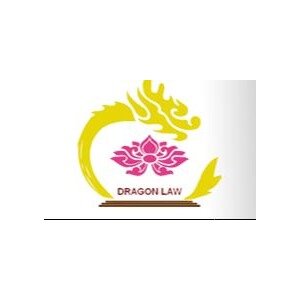Best Child Visitation Lawyers in Haiphong
Share your needs with us, get contacted by law firms.
Free. Takes 2 min.
Free Guide to Hiring a Family Lawyer
List of the best lawyers in Haiphong, Vietnam
About Child Visitation Law in Haiphong, Vietnam
Child visitation law in Haiphong, Vietnam, is primarily governed by the national laws and regulations that apply to the whole country. The legal framework aims to ensure the best interests of the child are upheld in cases of separation or divorce. Visitation rights allow a non-custodial parent to spend time with their child, and these are generally addressed during custody proceedings. The Vietnamese law emphasizes maintaining a healthy relationship between the child and both parents, whenever possible.
Why You May Need a Lawyer
There are several situations where legal assistance can be invaluable in matters of child visitation. If you are going through a divorce or separation and need to establish visitation rights, a lawyer can help negotiate and draft a visitation schedule. Legal advice is also essential if there are disputes over existing arrangements or if there are circumstances that require changes to the visitation agreement. Concerns such as parental relocation, allegations of child abuse, or substance abuse may necessitate legal intervention to protect the child's welfare.
Local Laws Overview
The key aspects of local laws relevant to child visitation in Haiphong, Vietnam, reflect the country's focus on the child's best interests. The law acknowledges the right of the child to have a relationship with both parents and provides for visitation arrangements that consider the child's age, needs, and parents’ circumstances. Additionally, visitation rights can be modified if significant changes in the family's situation occur or in response to a parent's failure to adhere to agreed terms.
Frequently Asked Questions
What is the legal procedure to obtain visitation rights in Haiphong?
To obtain visitation rights, you must typically submit a request to the local courts. The court will then determine the visitation schedule based on various factors intended to serve the best interest of the child.
Can visitation rights be denied to a parent?
Visitation rights can be denied if there is evidence that visitations could harm the child's physical or psychological health. However, this is generally rare and decided by the court after a thorough examination of the evidence.
Are visitation rights and child support linked?
While both child support and visitation rights aim to ensure the child's wellbeing, they are separate legal issues. The failure to pay child support does not automatically terminate visitation rights.
How can a visitation schedule be modified?
A visitation schedule can be modified through mutual agreement between both parents or by petitioning the court. Any changes should favor the child's best interests.
What happens if a parent violates visitation rights?
If a parent violates the visitation rights established by the court, the other parent can file a complaint with the court for enforcement or modification of visitation terms.
Is supervision required during visitation?
In cases where there are concerns for the child’s safety, the court may order supervised visitation. This ensures the child's welfare while maintaining parental contact.
How are visitation rights enforced across different jurisdictions?
If a parent lives outside Haiphong or Vietnam, enforcement may be more complex and may require cooperation between jurisdictions.
What role do grandparents play in visitation rights?
While the laws focus on parental rights, grandparents may seek visitation rights under certain circumstances, especially if they have served as primary caregivers or have established a strong bond with the child.
Can a child refuse visitation?
The preference of the child may be considered, depending on their age and maturity, but legal visitation rights are typically enforceable until a court order states otherwise.
How do cultural factors influence child visitation in Haiphong?
Cultural factors can play a role in child visitation arrangements, with the courts considering the traditional Vietnamese emphasis on family unity when making decisions.
Additional Resources
Individuals seeking information on child visitation rights in Haiphong may approach the Department of Justice or the local court system. Non-governmental organizations and child welfare agencies may also provide support and resources relevant to child visitation matters.
Next Steps
If you require legal assistance in matters of child visitation, the first step is to consult with a qualified lawyer who specializes in family law in Vietnam. The lawyer can guide you through the process of filing a request, negotiating terms, or representing you in court if necessary. It is important to gather any relevant documentation that supports your case, such as previous court orders, communication records, or proof of a stable home environment for the child.
Lawzana helps you find the best lawyers and law firms in Haiphong through a curated and pre-screened list of qualified legal professionals. Our platform offers rankings and detailed profiles of attorneys and law firms, allowing you to compare based on practice areas, including Child Visitation, experience, and client feedback.
Each profile includes a description of the firm's areas of practice, client reviews, team members and partners, year of establishment, spoken languages, office locations, contact information, social media presence, and any published articles or resources. Most firms on our platform speak English and are experienced in both local and international legal matters.
Get a quote from top-rated law firms in Haiphong, Vietnam — quickly, securely, and without unnecessary hassle.
Disclaimer:
The information provided on this page is for general informational purposes only and does not constitute legal advice. While we strive to ensure the accuracy and relevance of the content, legal information may change over time, and interpretations of the law can vary. You should always consult with a qualified legal professional for advice specific to your situation.
We disclaim all liability for actions taken or not taken based on the content of this page. If you believe any information is incorrect or outdated, please contact us, and we will review and update it where appropriate.










